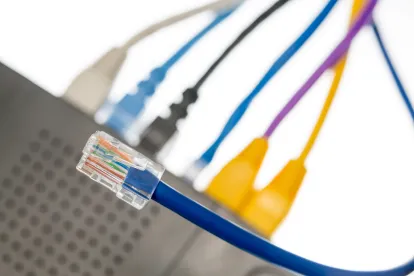CC Sets Bidding Weights for CAF II Auction
At the FCC’s February Open Meeting, the Commission adopted rules for the Connect American Fund Phase II (“CAF II”) Auction. Upwards of $215 million annually for 10 years will be made available for the reverse auction to support rural broadband deployment. The bidding “weights” fall into four (4) tiers with fiber-based gigabit service receiving the most favorable weighting and low capacity 10/1 Mbps offerings, principally DSL-based services, receiving the lowest rating. In addition, high latency services such as satellite are subject to a negative bidding weight.
FCC to Stay Broadband Privacy Rules
Last week, Chairman Pai moved to delay the implementation one of the broadband privacy rules adopted last year. That rule, which pertains to data security, would otherwise take effect on March 2. According to a Commission Statement, if Commissioners do not vote to stay the data security rule by March 2, then the Wireless Competition Bureau will do so. Pai has advocated a technology-neutral privacy framework that harmonizes the FCC’s privacy rules with the FTC’s.
Commission Extends Transparency Rules Exemption for Small ISPs
The Commission voted to extend for five years the exemption from the enhanced transparency rules for Internet Service Providers (ISPs) with 250,000 or fewer subscribers. The enhanced transparency rules were adopted in the FCC’s 2015 Open Internet Order. The exemption has been extended for five years.
Commission Authorizes First LTE-U Devices
Last week, the Commission authorized the first-ever LTE-U devices in the 5 GHz band. LTE-U devices allow for LTE use over unlicensed spectrum. According to a Statement by Chairman Pai, “voluntary industry testing has demonstrated that both these devices and WiFi operations can co-exist in the 5 GHz band.” Over the past few years, proponents of LTE-U and WiFi technologies debated whether LTE-U could coexist with the millions of WiFi and other devices already deployed in the Part 15 bands. The FCC noted that the LTE-U devices it certified were successfully evaluated under a unique co-existence test plan.
Power and Utility Executives Express Cybersecurity Concerns in Recent Survey
According to EY’s 19th Global Information Security Survey 2016-17, 89% of critical infrastructure executives expressed their cybersecurity systems do not fully meet the industry’s needs. As power and utility companies transition towards information technology (IT) and operations technology (OT) systems, they increase efficiency, but simultaneously increase exposure to cyber threats. Many responders cited budget constraints as a challenge. The amount of funding necessary will not be met primarily because companies choose not to allocate funds until a breach has already occurred. Instead, experts argue that investing in strengthening detect-and-response capabilities should be the priority.
Oral Arguments in FirstNet Rivada Mercury Lawsuit Begin March 3
After receiving the final briefs and meeting with the parties, U.S. Court of Federal Appeals Judge Elaine Kaplain issued an Order for Oral Arguments. In November, Rivada Mercury filed its protest for “wrongful exclusion” from the procurement process. Oral Arguments will begin Friday, March 3, further delaying the FirstNet Contract Award. Due to the Courts desire to maintain discretion regarding the details of the bid in question, the hearing will not be open to the public.
Two-for-One Deregulation at the FCC?
Last month, President Trump signed an Executive Order on Reducing Regulation and Controlling Regulatory Costs. The Executive Order sets out a number of related concepts focused on limiting Federal regulations, including a “Regulatory Cap.” Although the FCC is not subject to this Executive Order, it is possible that the Commission may choose to adopt a similar approach.







 />i
/>i

